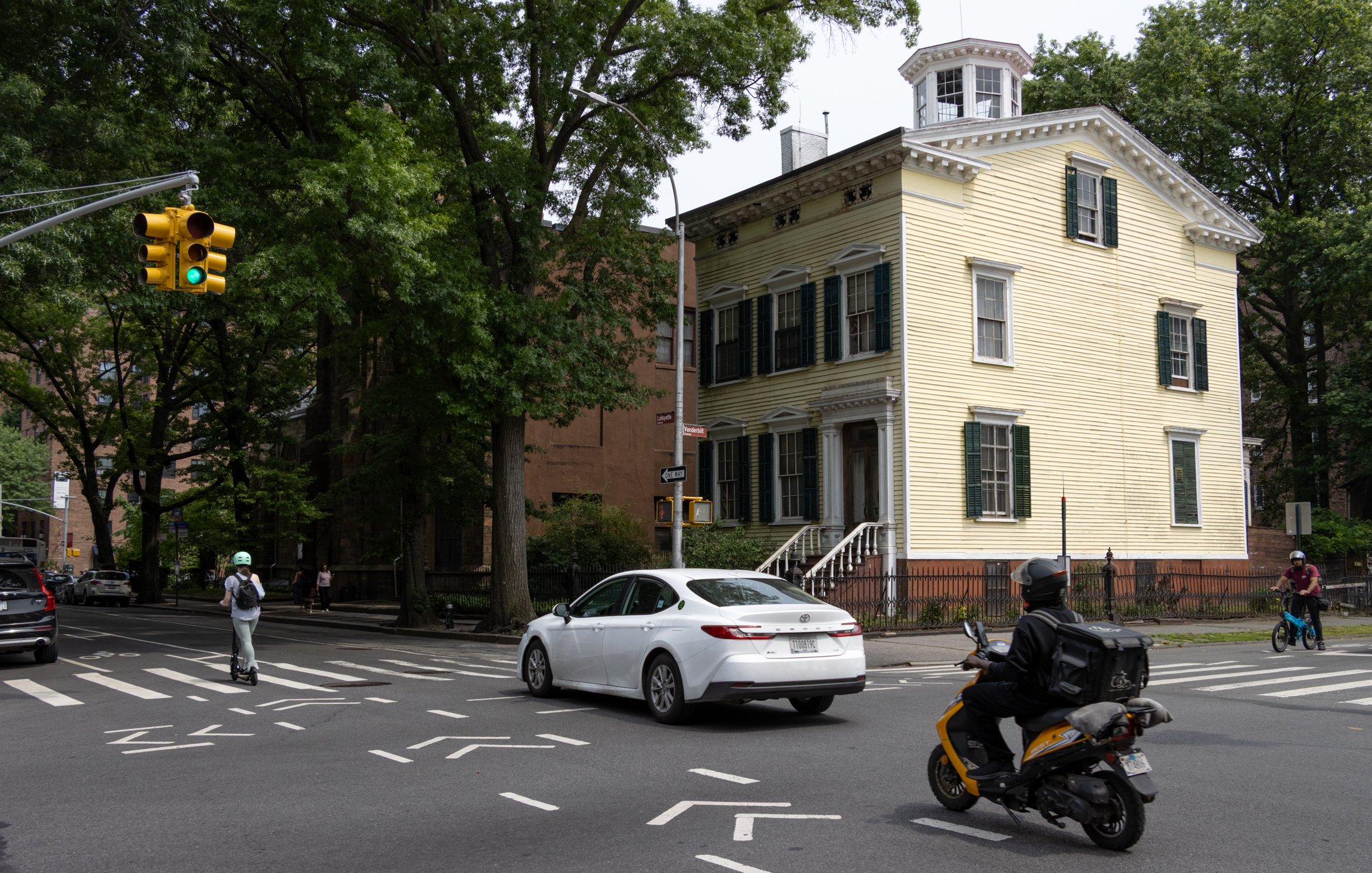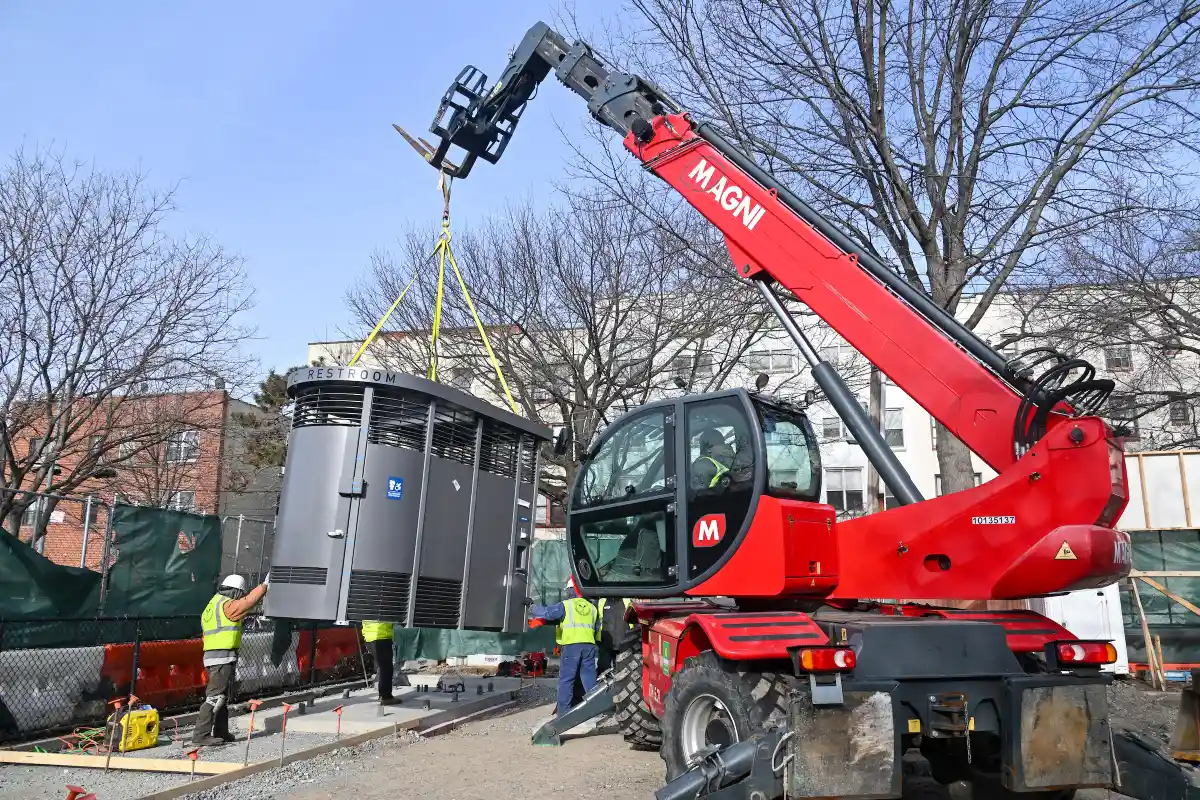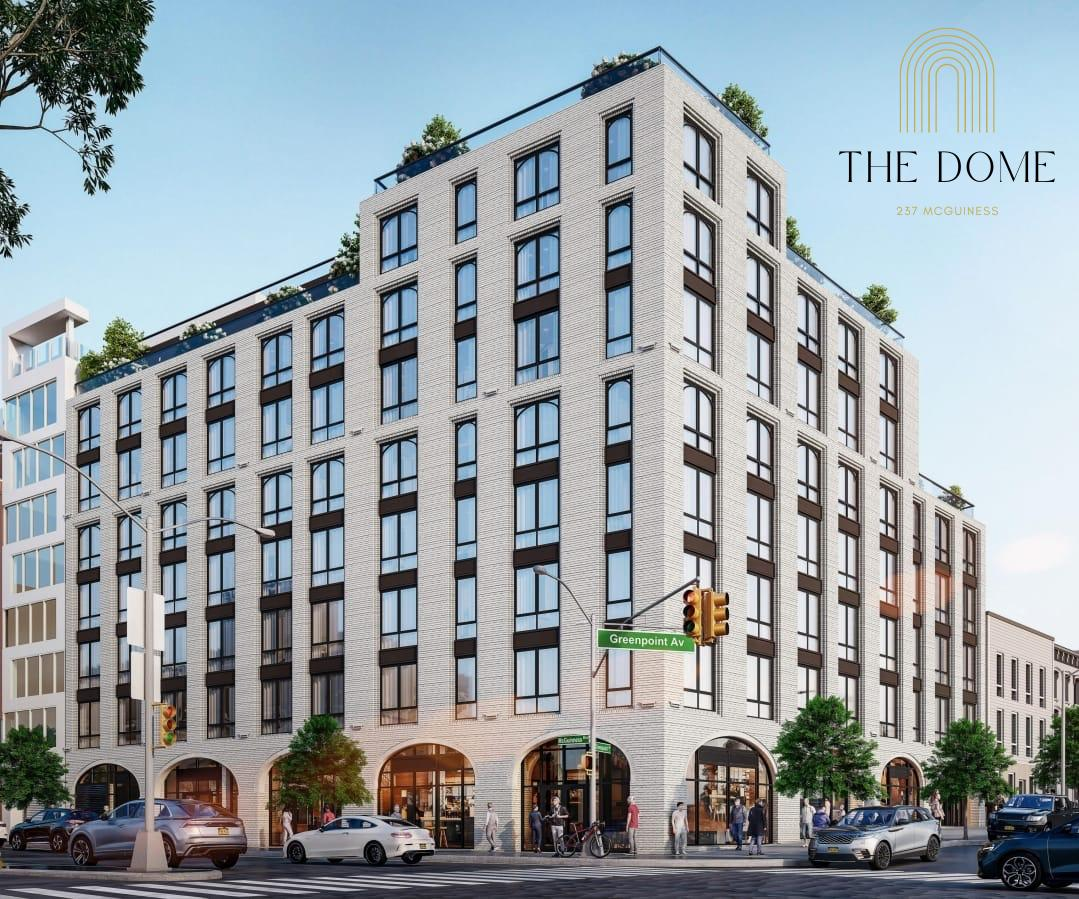Pols to Meth Clinic: Shape Up or Ship Out
Faced with a growing frustration among Clinton Hill residents over a host of quality of life issues associated with the methadone clinic at Waverly and Fulton, Assemblyman Hakeem Jeffries and Councilmember Letitia James held a sit-down recently with several officials from the state agency that oversees such operations and established a task force to try…


Faced with a growing frustration among Clinton Hill residents over a host of quality of life issues associated with the methadone clinic at Waverly and Fulton, Assemblyman Hakeem Jeffries and Councilmember Letitia James held a sit-down recently with several officials from the state agency that oversees such operations and established a task force to try to remedy the problems. Of particular concern was the combination of loitering, peripheral drug trade and aggressive behavior of clinic visitors and their hangers-on. The high concentration of such clinics in the immediate vicinity was also discussed. (The three clinics above service roughly 1/3 of methadone patients in Brooklyn.) According to Councilmember James, the people running the Fulton clinic have been extremely unresponsive to her overtures about addressing the problems, which are impacting not only the residential character of the neighborhood but the ability to revitalize an entire stretch of retail along Fulton Street. “Assembly Member Jeffries and I are hopeful this taskforce will serve as the proper vehicle to address issues that could threaten the commercial viability and success of Fulton Street,” Councilmember James said. “If matters persist, then I will renew my call for consolidation, downsizing and/or closure.” A community-wide meeting is being planned for late January. More details to come.





Just this morning I saw one of the staff who work at the Fulton Street clinic come out the front door where he noticed a couple of patients ogling a woman walking down Waverly towards Greene. The staff guy yells out “Yo!” to get her attention. She ignorned him and he laughed and joked around with the patients. Real professional. No wonder there are issues when this happens.
Education! Education! Education! This is the biggest problem. Alot of people do not know what is Methadone and what it is used for. I am speaking from a clients point of view. The clinic is not run by heroine addicts! Our staff personnel have Credentials. Also this MMTP is one of 3 clinics here.They have a Methadone program upstairs, then 2 DRUG FREE Programs. They are all run by ARTC, but they are not all Methadone. In these programs you learn how to stay illicit free of all drugs (including prescribed medication, alcohol, etc.). In these clinics they have Educational Classes for those who need to go back to school or get their GED, need help with City or Fed Tests, Computer Classes, Vocational Training, Job Placement, Support Groups, Networking, One on One Counseling, we have a Patient Advisory Committee who has raised funds thru Flea Markets, Bake Sales for Hurrican Katrina Victims, we have marched/ralley at (AIDS,Cancer,Hepatitis, Marches) and more. We went to Albany to speak to our Senators in 2005 inregards to this communities improvement. We are not all the Bad Apples here. The drug traffic around here has nothing to do with us clients and most of the Loitering is from the school students from this neighborhood and people that do not live here. We can all get along if we just try to put our heads together instead of making us the culprits. Instaed of being part of the problem, let’s be part of the Solution. Ms. L.Gonzalez (P.A.C.)
All of you people are woefully uninformed. Methadone TREATMENT has been in Brooklyn and the rest of NYC for forty years. There are 115 clinics located throughout NY State and they are all regulated by NYS, the Federal Government, and must be accredited to operate. Their capacity is controlled by NYS Office of Alcoholism and Substance Abuse Services. Part of the state regulations require that the clinics address “community concerns” in a positive way and that patients who fail to adhere to loitering and other policies cannot remain in treatment. On the other hand, the State has not provided the funding or support needed to provide vocational and educational services, motivational enhancement or other evidence based addiction treatment services to these clinics.
The clinics were there before the gentry moved in, and the gentry do not remember when heroin related crime and overdoses were common throughout the city. So the trade was treatment with a medication, coupled with counseling, medical care and social services or rampant heroin addiction, property crime, overdose deaths and disease. Opioid addiction is a chronic, relapsing disease of the brain (see http://www.nih.nida.gov) and may require lifelong treatment for the majority of patients – others, about 20% may be able to live without medication, but all must work a process of recovery. Further, these clinics in your area treat about 4,000 patients, and you complain about 50-100 of them. Not a bad recovery rate, if 2.5% are not doing well, is it?
Guest who thinks you all need education and knowledge.
5.10 – if you really want to try it out, addicts sometimes will keep the methadone in their mouth, spit it into a cup and try to sell it on the street. Good luck!
Crack is whack, even Whitney knows that.
there’s also a methadone clinic at 57th St and 6th Ave in the city (a block away from Tiffany’s). However, it’s run well so its impact is minimal.
For the CH clinic, telling them to shape up or ship out seems perfectly reasonable.
There is a methadone clinic on Court Street in Carroll Gardens that seems to be very well run. Despite its proximity to several bodegas and a couple schools, its customers and “hangers-on” are not a particularly visible presence. Every once in a while there is a problem, but it’s not chronic.
So, it is possible to run a methadone clinic in a way that isn’t horrifically detrimental to a “nice” neighborhood. Best wishes to Ms. James and her beleagured community.
“M’kay, drugs are bad, m’kay”
“I’m high right now”!